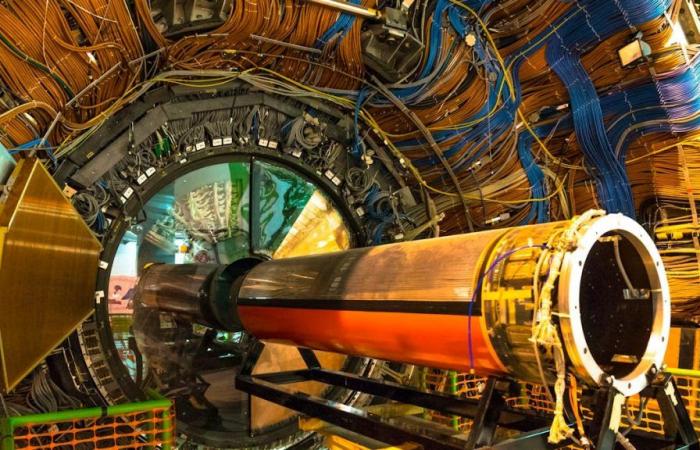Nearly 400 Russian scientists will be deprived of cooperation with the European Organization for Nuclear Research (CERN), we learned on Sunday from this Geneva-based laboratory which hosts the largest particle accelerator in the world.
CERN’s decision not to renew its cooperation agreement with Russia, which expires on November 30, “concerns scientists affiliated with Russian institutes – less than 500 today – who will have to cease this cooperation”, declared to the AFP Arnaud Marsollier, CERN spokesperson, confirming press information.
“Relations with scientists of Russian nationality affiliated with other institutes” and therefore non-Russian will not be affected, CERN clarified when its decision-making council finalized in December 2023 the decision to end cooperation with Russia.
Around 90 Russians have joined other laboratories and would be able to continue their collaboration, estimates Arnaud Marsollier. The decision does not affect employees of the Joint Institute for Nuclear Research (JINR), based in Dubna, Russia, about 110 kilometers north of Moscow. The JINR is considered “an international organization,” explained the CERN spokesperson.
Russia contributed around 4.5% of the annual operational costs of the experiments carried out with the giant particle accelerator, or around 2.3 million Swiss francs. But other CERN member states will take charge of this contribution from Russia, assured Arnaud Marsollier.
Moscow had also committed to contributing 40 million francs to the ongoing modernization of the particle accelerator, which should make it possible to increase the number of detectable events tenfold in 2029.
CERN, which currently has 24 member states according to its website, will fill the gap for this modernization, according to Arnaud Marsollier. There are “no delays expected because of this,” he assured.
The partnership with Belarus was not renewed when it expired on June 27, according to CERN. According to the press, fifteen Belarusian scientists are concerned. CERN announced in June 2022 the end of cooperation agreements with Russia and Belarus after their expiration in 2024, due to the war in Ukraine.
CERN’s accelerator, the Large Hadron Particle Collider (LHC), is a 27 km ring buried underground on the French-Swiss border. This global temple of the infinitely small, built in 2008, led to the discovery of the Higgs boson, which revolutionized physical sciences.






